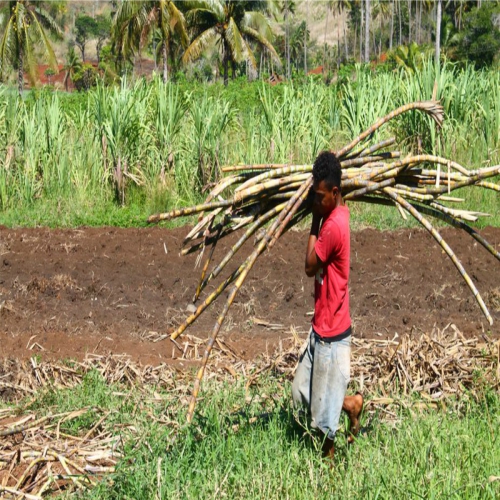Drought linked to the El Niño phenomenon is now hitting sugarcane production in Fiji for the 2024 season, which has just put the country’s biggest export earner under siege. The Fiji Sugar Corporation is now confirming that it may not be able to meet its shipment commitments, reports The Fiji Times.
The FSC had earlier contracted to supply a total of about 84,000 tonnes of sugar, comprising one cargo for the US market and two cargoes for a refiner in Korea. Excluding this, the company also contracted to supply almost 35,000 tonnes of sugar to local and regional markets.
FSC Chief Executive Officer Bhan Pratap Singh has revealed that the volume of expected sugar has been revised from an initial estimate of 153 021 tonnes down to 121 272 tonnes, which makes the fourth shipment unlikely. “The fourth shipment now does not seem possible as the volume of expected sugar has been reviewed from the initial estimate of 153,021 tonnes down to 121,272 tonnes,” said Singh.
The FSC had projected 1.51 million tonnes of cane production in November 2023 for the 2024 crop. With the drought not ceasing, projections stand at 1.30 million tonnes as of August 2024.
“The prolonged drought has affected not only the 2024 crop but has also jeopardized the 2025 seasonal crop, as the peak months of planting season from March to July have seen poor planting, and the establishment of the harvested ratoon crops is also poor,” Singh added. He added that even if it rains in the coming months, late planting and reduced productivity will remain a major worry.
The FSC is closely monitoring the situation and expresses its commitment to continuing to support farmers through difficult times ahead. All possible future strategies are being worked on by the corporation to mitigate the impact of drought on future crop cycles.
There was a rainfall reduction of 82 per cent between October and December last year at the Lautoka mill, 87 per cent at the Rarawai mill and 59 per cent at Labasa. Such huge rainfall deficiency led to a crop fall of 20 per cent at the mills in Viti Levu and a 4 per cent fall in the Labasa mill.
As of Monday, August 12, 2024, the Lautoka mill has crushed 208,768 tonnes of cane and produced 16,066 tonnes of sugar, the Rarawai mill has crushed 153,564 tonnes of cane to produce 13,677 tonnes of sugar, and the Labasa mill has crushed 239,388 tonnes of cane to produce 23,796 tonnes of sugar.
Continue reading Chinimandi.com for more news about the Sugar and Allied Sectors












